Moog brings back the Moogerfooger effect pedals in a new bundle of plugins for Mac and Windows
The classic analogue stompboxes are reborn for your DAW
Want all the hottest music and gear news, reviews, deals, features and more, direct to your inbox? Sign up here.
You are now subscribed
Your newsletter sign-up was successful
The demise of Moog’s Moogerfooger range of effect pedals in 2018 was a moment of sadness for many people, who’d come to love this collection of high-quality analogue stompboxes. Now it’s back, though this time, in the form of a bundle of seven plugins.
Bob Moog introduced the Moogerfooger brand in 1998, kicking things off with the MF-01 low-pass filter and MF-102 ring modulator, both of which were inspired by his synth module designs. The MF-103 phaser was released the following year, and four further products followed.
All seven Moogerfoogers have now been emulated for the DAW generation, with each plugin being based on the original analogue circuits. The effects now operate in stereo and have expanded feature sets; all parameters can be automated and you can create, save and load presets.
The hardware Moogerfoogers all featured CV inputs and outputs, meaning that they could be connected together to produce inter-related effects. This feature is recreated in the software versions; each instance of a Moogerfooger can modulate the parameters of any other. There are digital attenuverters on every CV input, along with sidechain and DC offset capabilities.
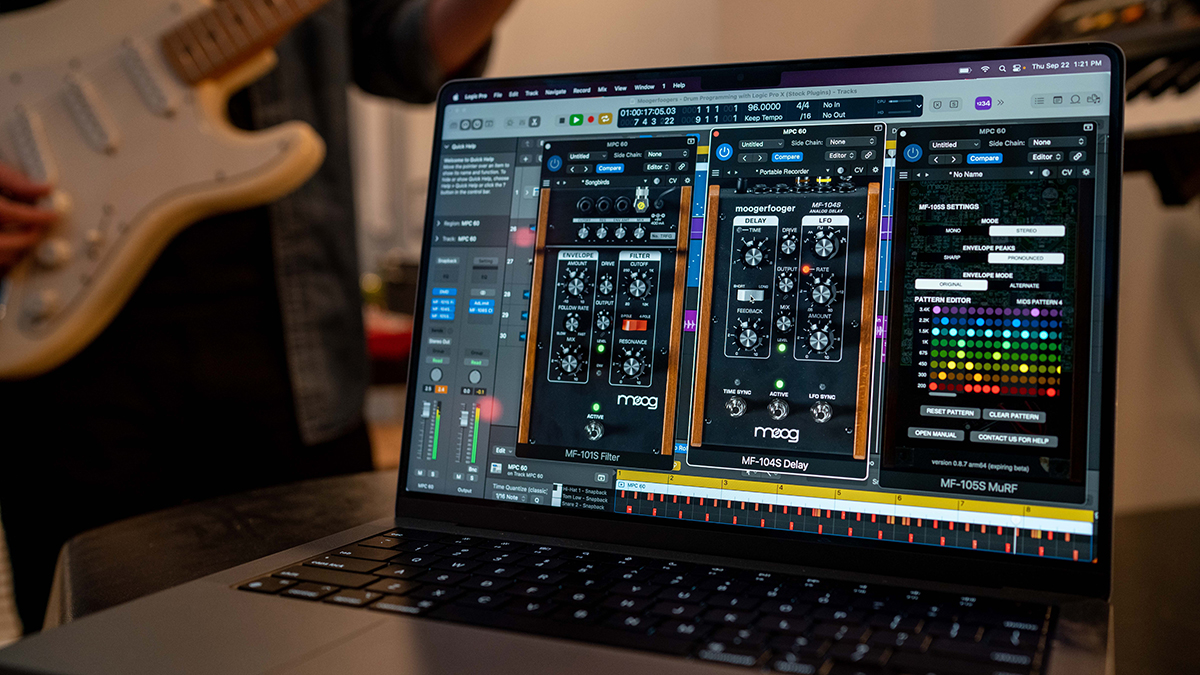
Having released multiple iOS apps - many of which are now available on macOS, too - the Moogerfooger effect plugins represent the next step on Moog’s software journey. And Steve Dunnington, the company’s current VP of Engineering and former apprentice of Bob Moog, feels that the great man would have approved.
“Bob liked to describe himself as a toolmaker for musicians,” Steve recalls. “He felt that technology should not drive the needs of musicians, but that engineers and toolmakers should use the needs of musicians to harness the power of technologies that serve those needs. He was never dogmatic about whether analogue or digital was better; he saw both technologies as different means to serve the musicians that he respected and admired.”
Discussing the genesis of the new suite, Steve says: As we began the development of the Moogerfooger Effects Plug-ins, it was of paramount importance not just to clone the devices, but to look for opportunities where digital technology could improve some of their characteristics. This is in alignment with Bob Moog’s philosophies - he was reluctant to copy his old designs but preferred to continue to refine and improve them based on the needs of musicians.
Want all the hottest music and gear news, reviews, deals, features and more, direct to your inbox? Sign up here.
“Thus, the envelope follower controls on the new MF-101S become more flexible for a wider variety of program material than the original MF-101, thanks to the possibilities provided by digital technology.
“Other examples abound in the Moogerfooger Effects Plug-ins, where inspiration was taken from the original with the addition of useful improvements. They sound great, like the classic Moog circuits we know and love.”
You can check out a full breakdown of all the Moogerfooger plugins below. They run on Mac and Windows in VST/AU/AAX formats, and the bundle is available now for the introductory price of $149 (regular price $249).
Find out more on the Moog website.
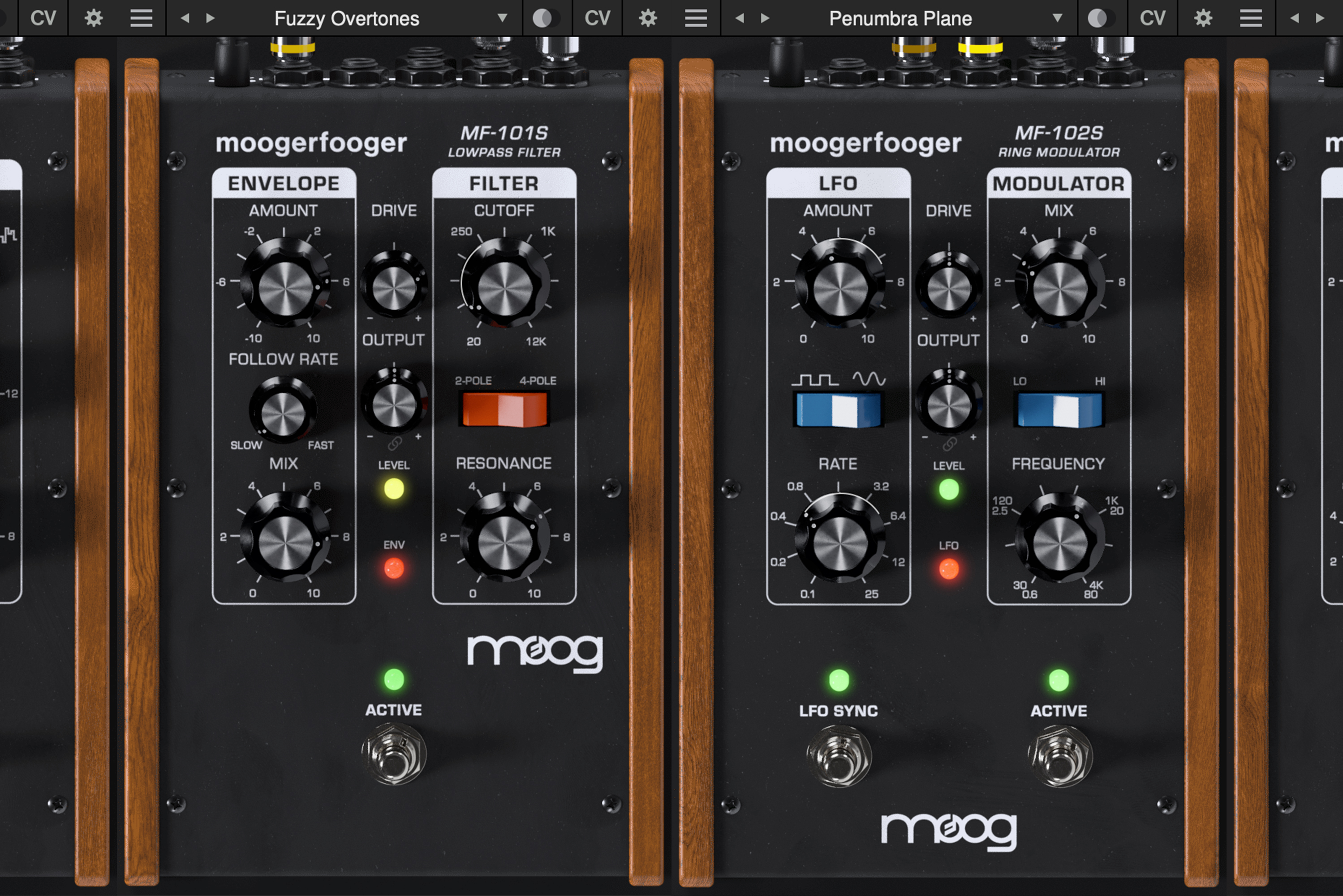
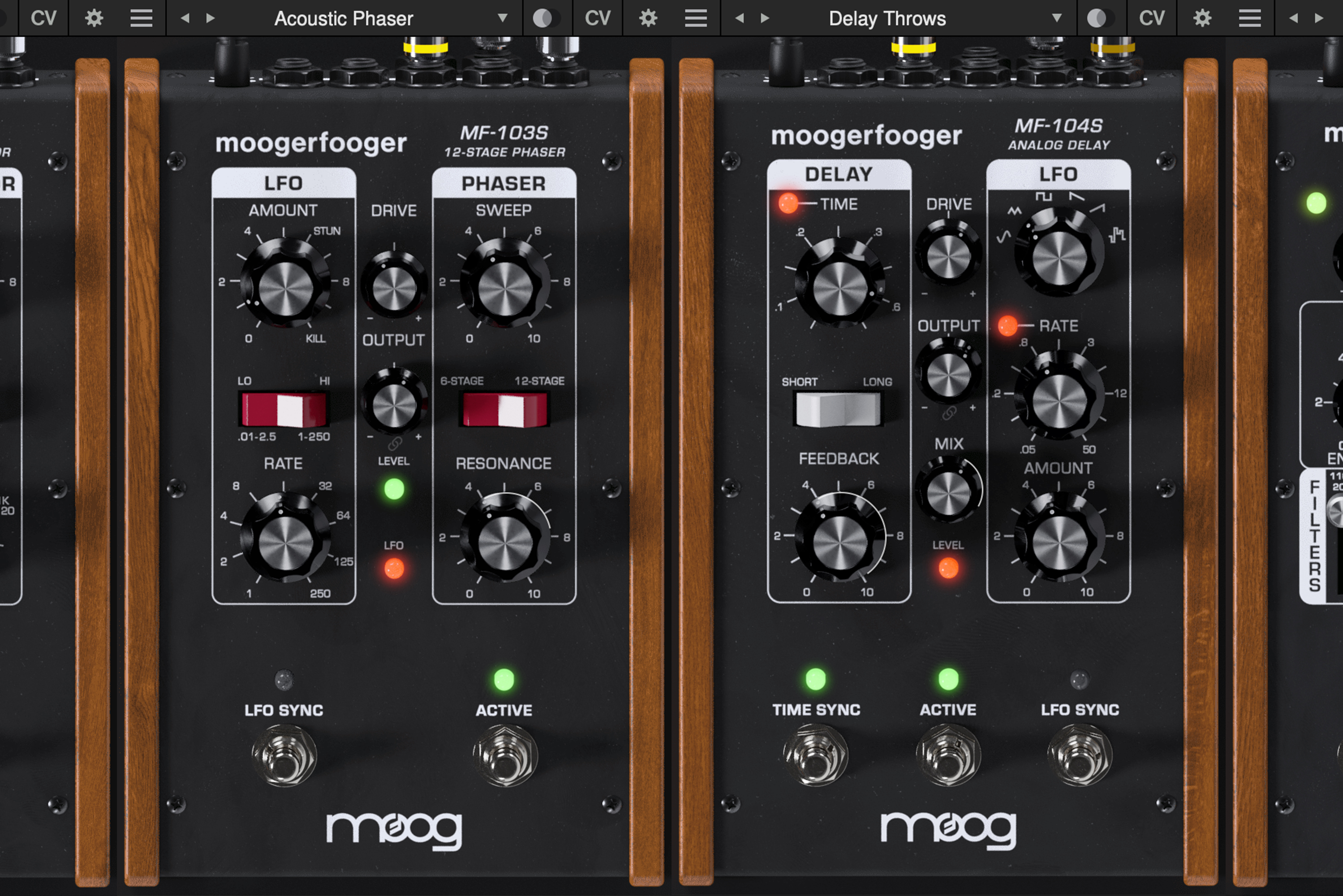
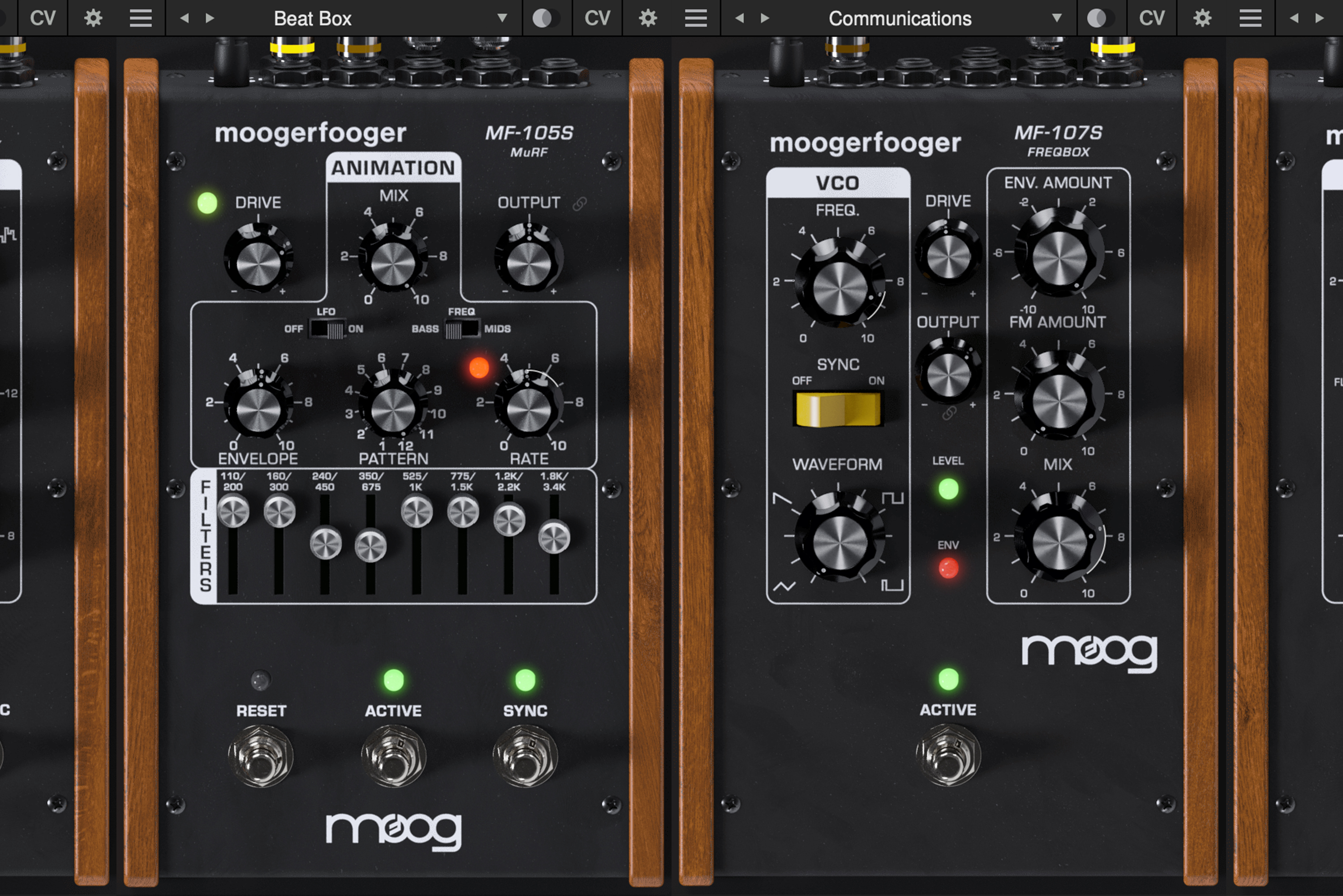
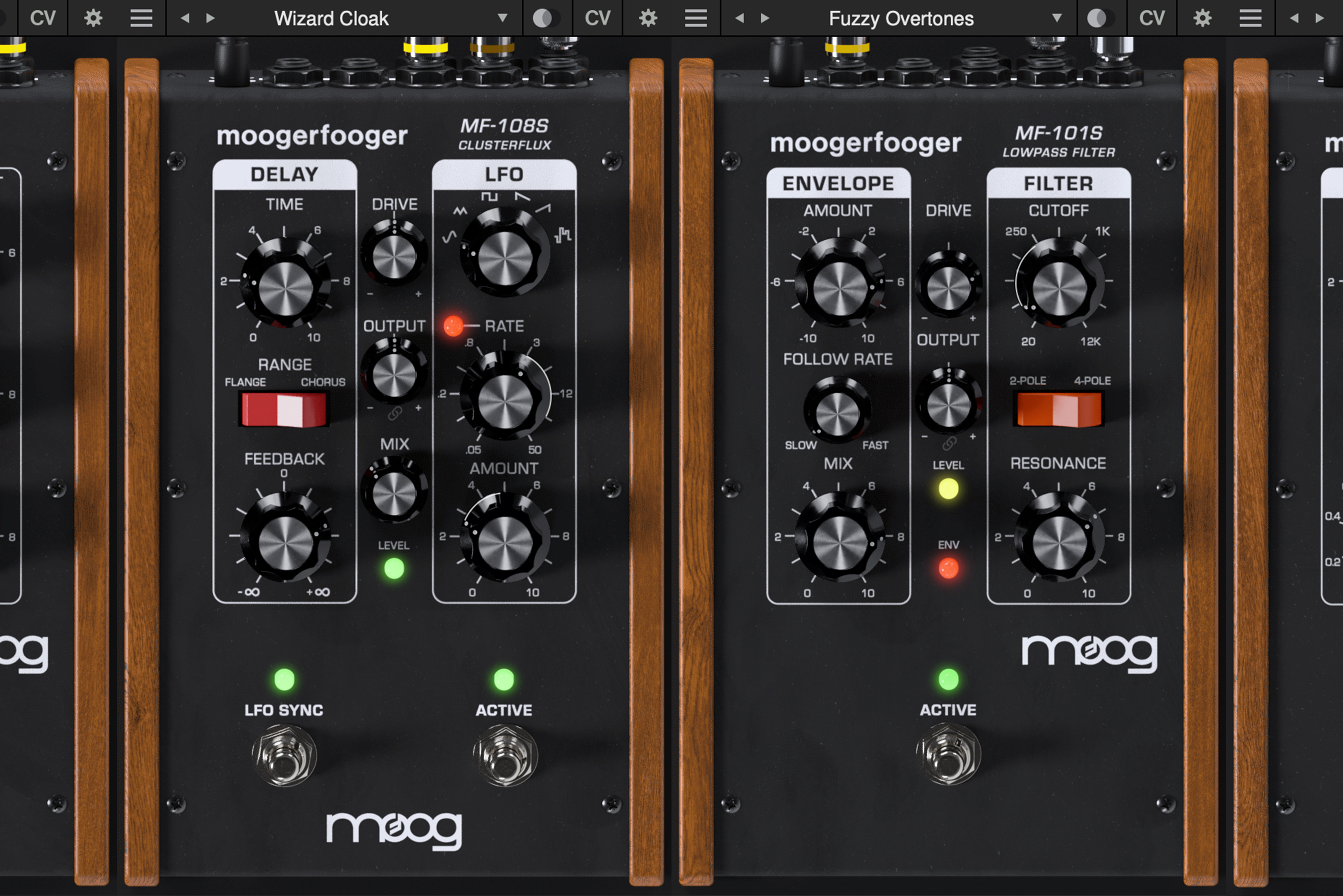
The full line-up of Moogerfooger effect plugins
- MF-101S Lowpass Filter: The classic Moog ladder filter with an envelope follower for dynamic control
- MF-102S Ring Modulator: A wide-range carrier oscillator paired with an LFO for effects from soft tremolo through to clangorous ring modulation
- MF-103S 12-Stage Phaser: A descendant of the 1970s rack-mounted Moog phaser with an onboard LFO
- MF-104S Analog Delay: A full-bodied delay and modulation circuit
- MF-105S MuRF: A resonant filter bank combined with a pattern generator and skewing envelope for animation of an incoming sound
- MF-107S FreqBox: A box of synced VCO sounds with envelope and FM modulation
- MF-108S Cluster Flux: A flexible processor that can modulate between chorus, flanging, and vibrato



I’m the Deputy Editor of MusicRadar, having worked on the site since its launch in 2007. I previously spent eight years working on our sister magazine, Computer Music. I’ve been playing the piano, gigging in bands and failing to finish tracks at home for more than 30 years, 24 of which I’ve also spent writing about music and the ever-changing technology used to make it.